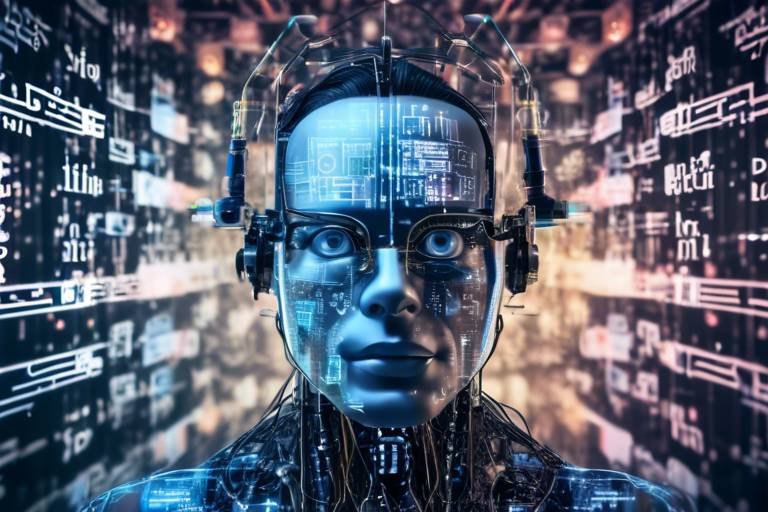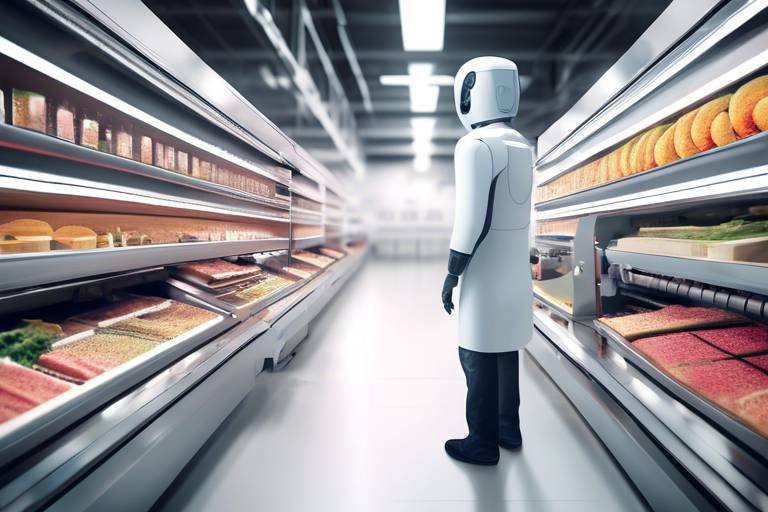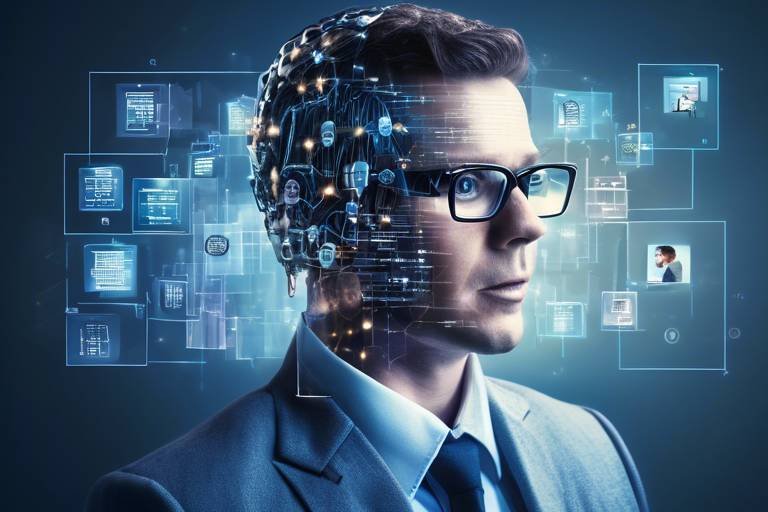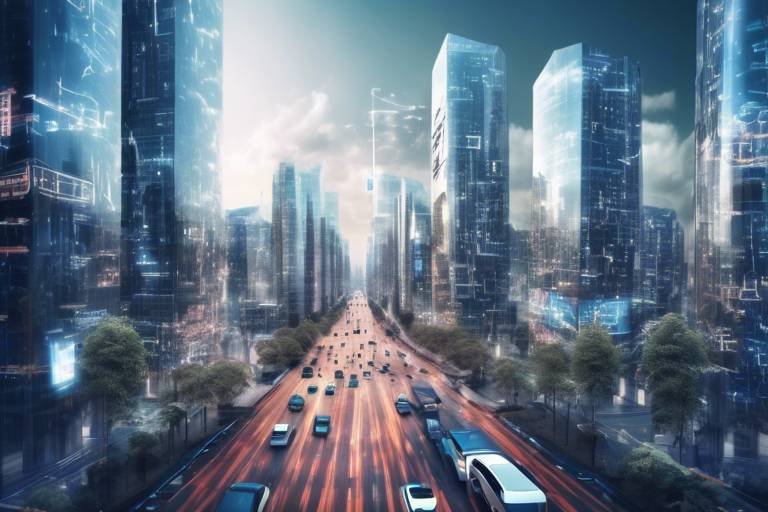AI in Music Industry: Is the Future Here?
Exploring the transformative role of artificial intelligence in the music industry, this article delves into its applications, benefits, challenges, and the future landscape of music creation and consumption. As technology continues to evolve, we find ourselves at a fascinating crossroads where creativity meets innovation. Can you imagine a world where machines not only assist but actively participate in the creation of music? Well, that future is knocking at our doors, and it's time to dive deep into how AI is reshaping the very fabric of the music industry.
The emergence of AI technology in the music industry has been nothing short of revolutionary. Over the past few years, we have witnessed significant developments that have paved the way for its integration into music production and distribution. From algorithm-driven platforms that analyze listening trends to AI tools that can compose original melodies, the landscape is changing rapidly. Artists and producers are beginning to embrace these innovations, not just as tools, but as collaborators in the creative process. Imagine a scenario where a musician can input a few notes into an AI system, and within seconds, it generates a fully orchestrated piece. This isn't just a dream; it's becoming a reality!
So, how exactly does AI assist musicians and composers in creating music? The answer lies in the development of sophisticated AI tools that can generate melodies, enhance arrangements, and even suggest lyrics. This has profound implications for creativity and originality in the songwriting process. With these tools at their disposal, musicians can explore new soundscapes and push the boundaries of their creativity. Can AI truly understand the nuances of human emotion in music? While that remains a topic of debate, the results produced by these tools are often impressive and can lead to unexpected musical journeys.
AI-driven composition tools are changing the way music is written and produced. These tools utilize complex algorithms to analyze existing music and generate new compositions based on learned patterns. For example, Amper Music and AIVA are two popular platforms that allow users to create music by simply selecting a genre, mood, and tempo. The AI then crafts a unique piece tailored to the user's specifications. This not only streamlines the creative process but also opens up opportunities for those who may not have traditional music training to express themselves musically.
Here’s a brief overview of some popular AI tools used in music composition:
| Tool Name | Functionality | Target Users |
|---|---|---|
| Amper Music | Generates music based on user inputs | Musicians, Content Creators |
| AIVA | Composes classical music and soundtracks | Composers, Filmmakers |
| OpenAI's MuseNet | Generates music in various styles | Musicians, Hobbyists |
The impact of AI on traditional songwriting is profound. It challenges the very notion of authorship in music. As AI tools become more sophisticated, questions arise about what it means to be a songwriter. Is the music created by an AI less valuable than that composed by a human? This debate is ongoing, but one thing is clear: AI is here to stay, and it is reshaping the creative process in ways we are just beginning to understand.
Beyond composition, AI plays a crucial role in music production. It streamlines processes, enhances sound quality, and assists producers in achieving their artistic vision. For instance, AI algorithms can analyze tracks and suggest improvements, making the mixing and mastering process more efficient. This not only saves time but also allows producers to focus more on the creative aspects of their work instead of getting bogged down by technical details.
On the distribution side, AI is revolutionizing how music is marketed and consumed. Algorithms now personalize music recommendations for listeners, creating a customized listening experience that keeps users engaged. Imagine opening your favorite streaming app and being greeted with a playlist that feels like it was made just for you. This is the power of AI in music distribution.
AI's ability to create personalized playlists and recommendations enhances user engagement and satisfaction in music streaming platforms. By analyzing listening habits and preferences, AI can curate a unique music experience that resonates with individual users. This not only helps listeners discover new artists and genres but also fosters a deeper connection between the audience and the music.
However, the rise of AI in the music industry is not without its challenges and ethical considerations. Issues such as copyright, authenticity, and the potential for job displacement among musicians and producers are pressing concerns. As we navigate this new landscape, it is essential to address these challenges thoughtfully and ensure that the benefits of AI are shared equitably across the industry.
- How is AI changing the music industry? AI is streamlining music creation, enhancing production quality, and personalizing music distribution.
- Are AI-generated songs considered original? This is a debated topic, as AI can create music based on existing patterns, raising questions about authorship.
- What are some popular AI tools for musicians? Tools like Amper Music, AIVA, and OpenAI's MuseNet are widely used for music composition.
- Can AI replace human musicians? While AI can assist in music creation, it is unlikely to fully replace the emotional depth and creativity of human musicians.
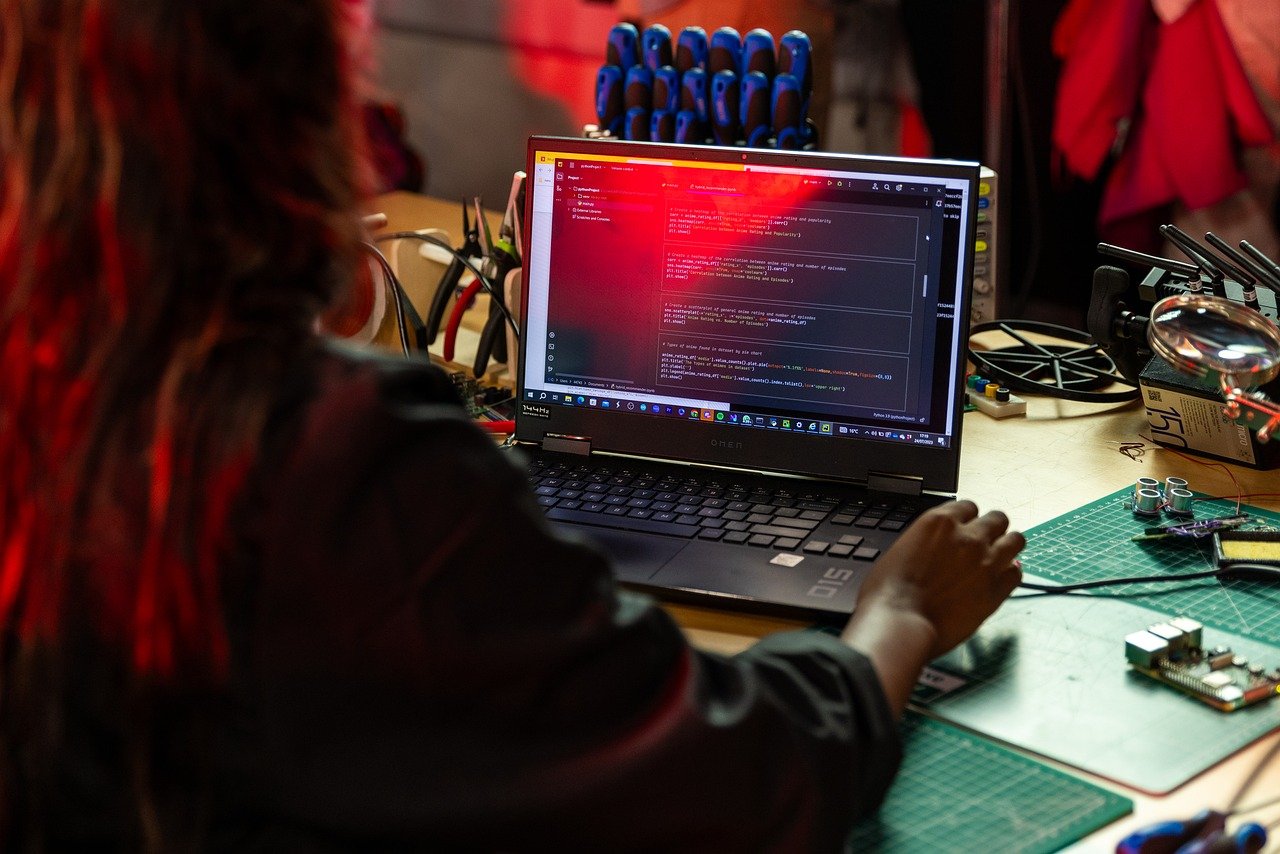
The Rise of AI in Music
Artificial Intelligence (AI) has made significant inroads into various industries, and the music sector is no exception. Over the past few years, we have witnessed a remarkable transformation in how music is created, produced, and consumed, thanks to advancements in technology. The integration of AI into music has not only revolutionized the creative process but has also changed the landscape of music distribution and consumption. So, what led to this rise of AI in music?
The journey began with the development of algorithms capable of analyzing vast amounts of data. These algorithms can identify patterns and trends, which musicians and producers can leverage to create more appealing music. For instance, AI can analyze the most popular songs across various genres and suggest elements that could enhance a new composition. This data-driven approach has opened the doors to a new era of music-making, where creativity is supported by empirical evidence.
Moreover, the emergence of AI-driven tools has made music production more accessible than ever before. Musicians no longer need to be experts in every aspect of music creation; instead, they can rely on AI to assist them in various stages of the process. From generating melodies to providing suggestions for chord progressions, AI tools are like having a collaborative partner in the studio. For example, platforms like Amper Music and AIVA have gained popularity for their ability to generate original compositions based on user inputs.
As we dive deeper into the rise of AI in music, it's essential to highlight some of the key developments that have paved the way for its integration:
- Machine Learning: The ability of AI to learn from data and improve its outputs over time has been a game-changer. This technology allows AI to adapt to different styles and genres, making it a versatile tool for musicians.
- Natural Language Processing: AI can now understand and generate human language, enabling it to assist in songwriting and lyric generation, which was once a purely human endeavor.
- Real-Time Collaboration: AI tools facilitate real-time collaboration among artists, regardless of their geographical location, allowing for a more dynamic and interactive music creation process.
In addition to enhancing creativity, AI's rise in the music industry is also attributed to its ability to streamline production processes. Producers can use AI to automate repetitive tasks, such as mixing and mastering tracks, which frees up time for them to focus on the more creative aspects of their work. This efficiency not only speeds up the production timeline but also helps maintain high-quality sound standards.
As we look to the future, the role of AI in music will likely continue to expand. With ongoing advancements in technology, we can expect even more sophisticated tools that will further blur the lines between human creativity and machine intelligence. The question remains: will AI become the co-creator of music, or will it merely serve as a tool for human artists? Regardless of the answer, one thing is clear: the rise of AI in music is here to stay, and it promises to reshape the industry in ways we are only beginning to understand.
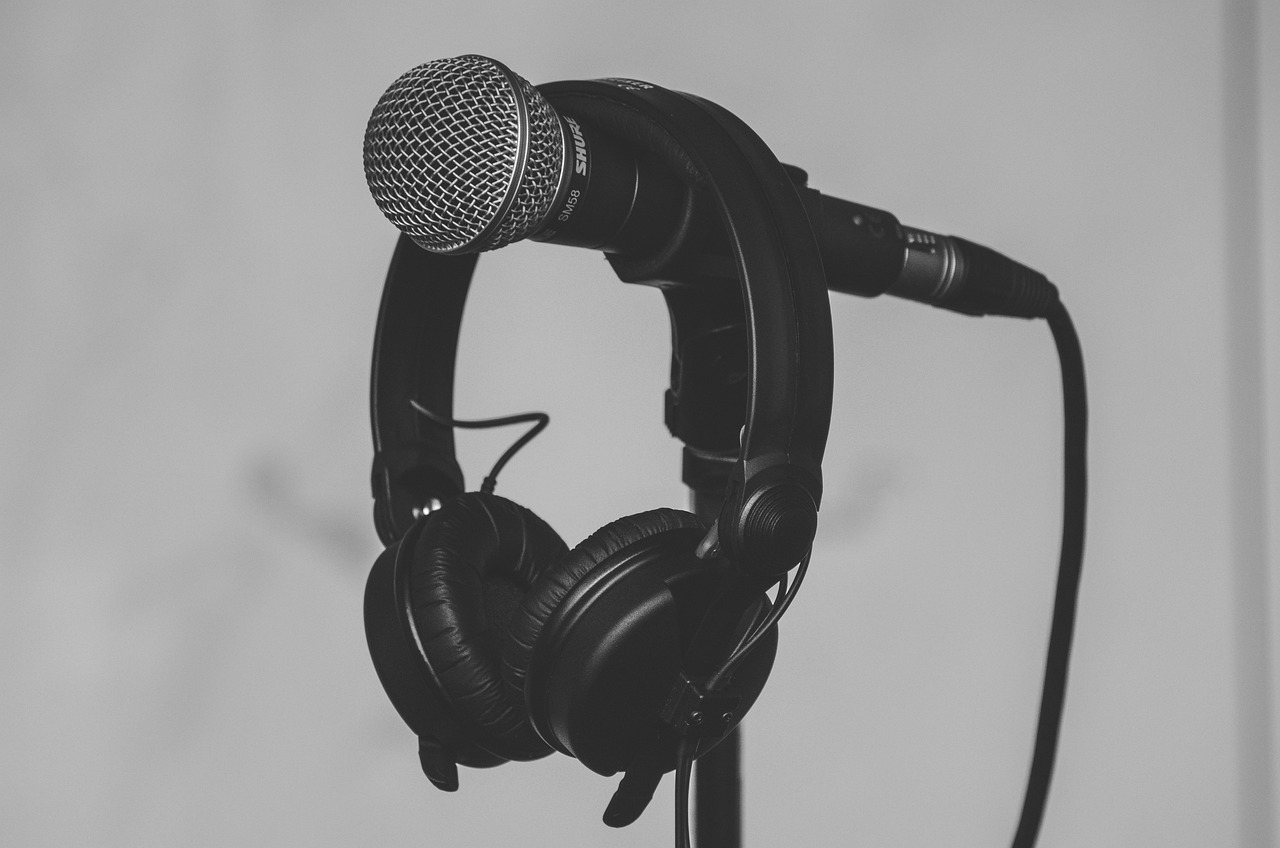
AI in Music Creation
In recent years, the music industry has witnessed a remarkable transformation, with artificial intelligence stepping into the spotlight as a powerful tool for musicians and composers alike. Imagine having a virtual assistant that not only understands your musical style but can also generate melodies, harmonies, and even entire compositions based on your preferences. Sounds like something out of a sci-fi movie, right? Well, this is the reality we are living in today!
AI technology has opened up new avenues for creativity, enabling artists to explore their musical ideas in ways that were previously unimaginable. With the help of sophisticated algorithms, AI can analyze vast amounts of music data to identify patterns, styles, and trends. This capability allows it to generate original music that can inspire and complement a musician's unique vision. The implications for creativity and originality in the songwriting process are profound, as AI becomes a collaborator rather than just a tool.
One of the most exciting developments in AI music creation is the emergence of AI-driven composition tools. These tools are designed to assist artists in various stages of the creative process, from brainstorming ideas to refining final tracks. For instance, platforms like AIVA and Amper Music allow users to input specific parameters, such as mood, tempo, and genre, and then generate music that fits those criteria. This not only saves time but also encourages experimentation and innovation.
AI-driven composition tools are revolutionizing the way music is written and produced. They offer features that range from basic melody generation to complex arrangements. Here are some key aspects of these tools:
- Melody Generation: AI can create catchy melodies that serve as the foundation for songs.
- Harmonic Support: These tools can suggest harmonies that complement the main melody, enhancing the overall sound.
- Arrangement Suggestions: AI can propose arrangements based on popular trends, helping artists structure their songs effectively.
Some of the most popular AI tools used in music composition include:
| Tool Name | Functionality | Target Users |
|---|---|---|
| AIVA | Generates compositions in various styles | Composers, filmmakers |
| Amper Music | Creates custom music tracks for videos | Content creators, marketers |
| OpenAI's MuseNet | Generates music in multiple genres | Musicians, hobbyists |
The impact of AI on traditional songwriting is both exciting and challenging. On one hand, AI tools provide musicians with new resources to enhance their creativity, allowing them to push the boundaries of their artistry. On the other hand, these technologies raise questions about authorship and the essence of human creativity. If a song is partially created by an algorithm, who owns the rights to it? This dilemma is prompting discussions within the industry about how to navigate the evolving landscape of music creation.
In conclusion, AI is not just a passing trend in the music industry; it's a game-changer that is reshaping the way we think about creativity and collaboration. As musicians embrace these tools, we can expect to see a new wave of innovation that blurs the lines between human and machine-made music. The future of music creation is bright, and it's powered by the incredible potential of artificial intelligence.
Q1: Can AI create music that sounds like a specific artist?
A1: Yes, AI can analyze the style of specific artists and generate music that resembles their sound, although the results may vary in terms of authenticity.
Q2: Will AI replace human musicians?
A2: While AI can assist in the creative process, it is unlikely to replace human musicians entirely. Instead, it serves as a tool that enhances artistic expression.
Q3: How do I get started with AI music tools?
A3: You can start by exploring platforms like AIVA or Amper Music, which offer user-friendly interfaces for creating music with AI assistance.

AI-Driven Composition Tools
In the ever-evolving landscape of music creation, have emerged as powerful allies for musicians and composers. These innovative technologies are not just enhancing the creative process; they are fundamentally changing how music is conceived and produced. Imagine having a virtual assistant that can generate melodies, suggest chord progressions, and even provide rhythmic patterns tailored to your artistic vision. Sounds futuristic, right? Well, the future is now!
One of the most exciting aspects of these tools is their ability to learn from vast databases of existing music. By analyzing patterns, structures, and styles, AI can produce original compositions that reflect a wide array of genres. This capability opens up new avenues for creativity, allowing artists to experiment with sounds and styles they may not have considered before. For instance, a composer looking to create a film score can input specific parameters such as mood, tempo, and instrumentation, and the AI can generate multiple options that fit those criteria. This not only saves time but also sparks inspiration in ways that traditional methods may not.
Among the most popular AI-driven composition tools currently making waves in the industry are AIVA, Amper Music, and OpenAI's MuseNet. Each of these platforms offers unique features:
| Tool | Features | Target Users |
|---|---|---|
| AIVA | Generates emotional soundtracks, customizable styles | Composers, filmmakers |
| Amper Music | User-friendly interface, royalty-free music creation | Content creators, marketers |
| MuseNet | Generates music in various styles, including classical and pop | Musicians, hobbyists |
The impact of these AI tools on traditional songwriting is profound. They challenge the conventional notion of authorship, as the lines between human creativity and machine-generated content blur. Some may argue that AI lacks the emotional depth that human composers bring to their work. However, others see AI as a collaborator that can enhance human creativity rather than replace it. After all, isn’t music about exploration and innovation? By embracing these tools, artists can push the boundaries of their creativity and explore new sonic landscapes.
As we delve deeper into the world of AI-driven composition tools, it’s essential to consider the balance between technology and the human touch. While these tools can provide a wealth of ideas and inspiration, the final creative decisions still lie with the artist. The magic of music often comes from the personal experiences and emotions that only a human can convey. Thus, AI should be viewed as a partner in the creative process, one that can augment the artist's vision rather than overshadow it.
In conclusion, AI-driven composition tools are revolutionizing the way music is created. They empower musicians to explore new ideas and enhance their creative processes, paving the way for an exciting future in music composition. As these technologies continue to evolve, we can only imagine the incredible sounds and compositions that will emerge from this collaboration between human creativity and artificial intelligence.
- What are AI-driven composition tools? These are software applications that use artificial intelligence to assist in creating music, offering features like melody generation, chord suggestions, and more.
- Can AI compose music on its own? Yes, AI can generate original compositions based on learned patterns from existing music, but human input is often necessary to refine and personalize the output.
- Are AI-generated songs copyrightable? This is a complex issue and varies by jurisdiction, but generally, copyright laws are still evolving to address AI-generated content.

Examples of Popular AI Tools
In the ever-evolving landscape of music creation, several AI tools have emerged as game-changers, significantly enhancing the way artists compose and produce music. These tools leverage advanced algorithms and machine learning to assist musicians in their creative processes, making it easier to explore new sounds and ideas. Let's take a closer look at some of the most popular AI tools that are currently making waves in the music industry.
One of the most notable tools is Amper Music. This platform allows users to create original music tracks by simply selecting a few parameters such as mood, genre, and length. Amper's intuitive interface makes it accessible for both seasoned musicians and novices alike, enabling anyone to produce high-quality music without extensive knowledge of music theory. Artists can use Amper to generate background scores for videos, podcasts, or even as a foundation for more complex compositions.
Another standout tool is AIVA (Artificial Intelligence Virtual Artist). AIVA is designed specifically for composers, helping them create emotional soundtracks for films, games, and advertisements. It analyzes thousands of existing compositions to understand different styles and genres, allowing it to generate music that evokes specific feelings. This tool is particularly useful for those looking to save time on initial drafts, as it can produce a variety of compositions in a matter of minutes.
Then we have Soundraw, which takes a more collaborative approach. This AI tool allows musicians to co-create music by generating melodies and harmonies based on user input. Soundraw’s unique feature is its ability to learn from the user’s preferences, continuously improving its suggestions over time. This creates a dynamic interplay between human creativity and AI assistance, making it a favorite among many artists.
Lastly, LANDR is an AI-driven platform that focuses on music mastering. It uses machine learning to analyze tracks and apply professional-level mastering techniques, ensuring that the final product is polished and ready for distribution. This tool democratizes the mastering process, making it accessible for independent artists who may not have the budget to hire a professional mastering engineer.
These tools represent just a fraction of what is available in the market today. As technology advances, we can expect even more innovative solutions that will redefine the way music is created. However, it’s essential to remember that while AI can enhance creativity, the human touch remains irreplaceable. Musicians can leverage these tools to explore new avenues, but the essence of music—the emotion, the story, and the artistry—will always stem from the human experience.
- Can AI compose music that sounds human-made?
Yes, many AI tools are designed to create music that closely resembles human compositions. However, the emotional depth and personal touch of human-created music still hold a unique value. - Are AI-generated songs copyrighted?
This is a complex issue. Generally, copyright laws vary by country, and it often depends on whether a human was involved in the creation process. - Can AI replace musicians?
While AI can assist in the music creation process, it is unlikely to replace musicians entirely. The creativity and emotional connection that artists bring to their work are irreplaceable. - How can I start using AI tools for my music?
Many AI tools offer free trials or basic versions. You can explore platforms like Amper Music, AIVA, Soundraw, and LANDR to see which ones suit your needs best.

Impact on Songwriting
The advent of artificial intelligence in the music industry has sparked a revolutionary shift in the way we approach songwriting. Traditionally, songwriting has been a deeply personal and creative endeavor, often reflecting the artist's emotions, experiences, and unique perspective. However, with AI tools stepping into the limelight, the landscape of songwriting is evolving in fascinating ways. Imagine having a virtual collaborator that can generate melodies, suggest chord progressions, or even provide lyrical inspiration at the click of a button. This is no longer a distant dream; it's a reality that many artists are embracing.
One of the most intriguing aspects of AI in songwriting is its ability to analyze vast amounts of data from existing songs. By examining patterns, structures, and trends, AI can help artists understand what makes a hit song resonate with listeners. This data-driven approach can lead to more informed decisions in the songwriting process, enabling musicians to craft tracks that are not only innovative but also commercially viable. It's like having a musical crystal ball that predicts what audiences will love!
However, this integration of AI into the creative process raises important questions about authenticity and creativity. Can a song created with the assistance of AI truly reflect the artist's voice? Or does it risk becoming a product of algorithms rather than genuine expression? Many musicians worry that relying too heavily on AI could dilute the emotional depth and storytelling that are hallmarks of great songwriting. After all, music is an art form that thrives on human experience and connection.
Moreover, the impact of AI on songwriting extends beyond individual artists. It has the potential to democratize music creation, allowing aspiring musicians who may lack formal training to produce high-quality songs. With user-friendly AI tools, anyone with a passion for music can experiment with songwriting, breaking down barriers that once seemed insurmountable. This could lead to a surge of diverse voices and styles in the music industry, enriching the soundscape and challenging the status quo.
To illustrate the impact of AI on songwriting, consider the following:
| Aspect | Traditional Songwriting | AI-Assisted Songwriting |
|---|---|---|
| Creativity | Human emotion and experience | Data-driven insights and suggestions |
| Accessibility | Requires skill and training | Open to anyone with AI tools |
| Collaboration | Typically solitary or with other musicians | Can involve AI as a virtual collaborator |
As we navigate this new frontier, it's crucial for artists to find a balance between leveraging AI's capabilities and maintaining their unique artistic voice. The future of songwriting may very well lie in a hybrid approach, where human creativity and AI technology coexist harmoniously. By embracing the strengths of both, musicians can push the boundaries of what is possible in music creation, leading to an exciting evolution in the art of songwriting.
- Can AI replace human songwriters? While AI can assist in the songwriting process, it cannot replicate the emotional depth and personal experiences that human songwriters bring to their music.
- What are some popular AI tools for songwriting? Tools like Amper Music, AIVA, and Jukedeck are examples of AI-driven platforms that help musicians create music.
- How does AI analyze music trends? AI algorithms analyze large datasets of songs to identify patterns in melodies, lyrics, and structures that resonate with listeners.
- Is AI songwriting ethical? The ethics of AI in songwriting are still being debated, particularly regarding authorship and copyright issues.
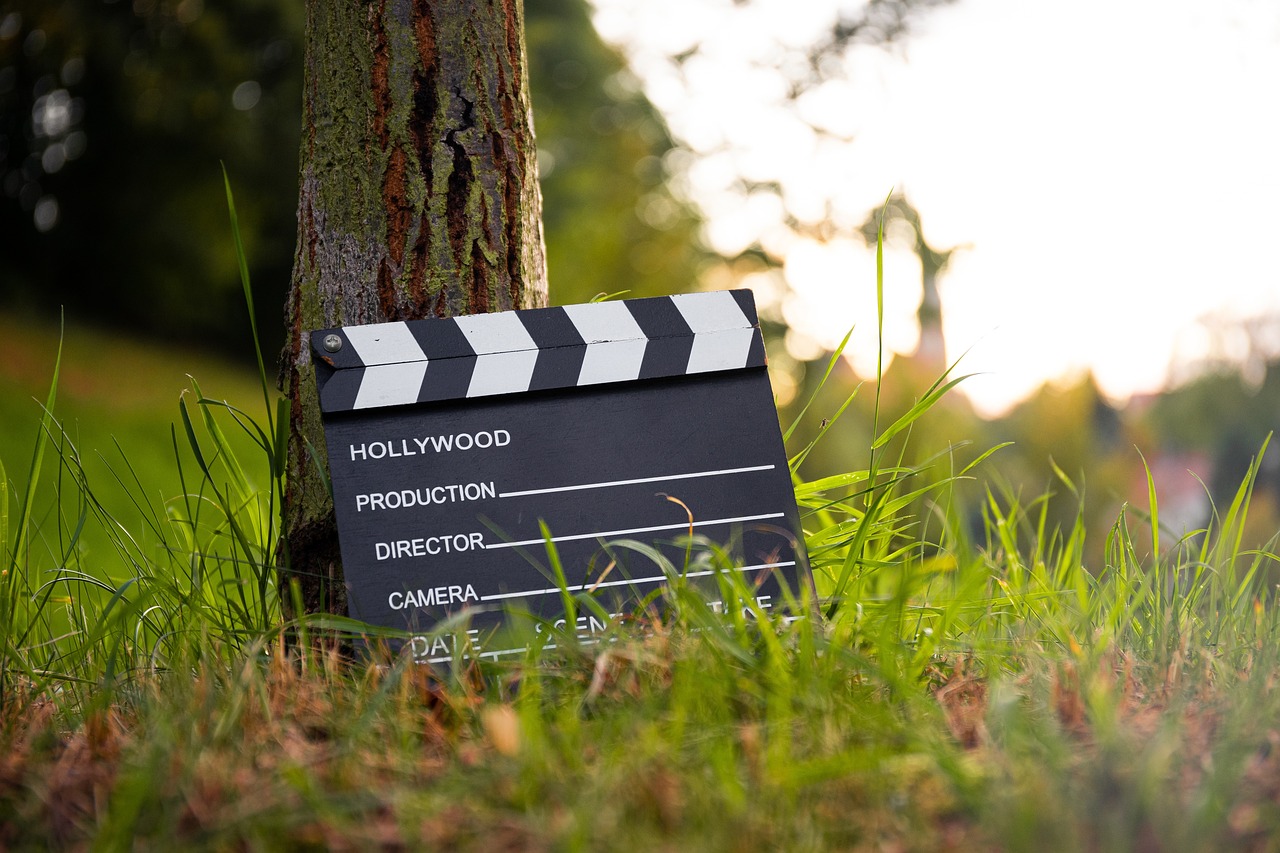
The Role of AI in Music Production
Artificial Intelligence (AI) is not just a buzzword anymore; it has become a vital player in the music production landscape. Imagine a world where your favorite tracks are crafted with the help of sophisticated algorithms that analyze sound patterns, optimize audio quality, and even suggest creative enhancements. This is the new reality, and it’s transforming how producers approach their craft. AI tools are designed to streamline various aspects of music production, allowing artists to focus more on their creative vision rather than getting bogged down by technical details.
One of the most significant advantages of AI in music production is its ability to enhance sound quality. With tools that can automatically adjust levels, EQ settings, and even compress audio, producers can achieve a polished sound with minimal effort. For instance, AI algorithms can analyze a track and make real-time adjustments to ensure that every element sits perfectly in the mix. This not only saves time but also elevates the overall quality of the final product, making it more appealing to listeners.
Moreover, AI assists in the creative process by providing suggestions and variations that artists might not have considered. Imagine having a virtual collaborator that offers fresh ideas based on existing tracks or genres. AI-driven software can analyze vast libraries of music to identify trends and suggest unique elements that could enhance a composition. This capability is particularly useful for producers who might be feeling stuck or uninspired, acting as a catalyst for creativity.
As we dive deeper into the role of AI in music production, it’s essential to consider the various tools that are currently making waves in the industry. Here are some of the notable AI-driven production tools:
| Tool Name | Functionality | Key Features |
|---|---|---|
| Landr | Online mastering service | Instant mastering, genre-specific adjustments |
| AIVA | AI composer | Generates original compositions, various styles |
| Amper Music | Music creation platform | Customizable tracks, easy integration with video |
These tools exemplify how AI is reshaping the music production process. However, the integration of AI also raises questions about the future of the industry and the role of human creativity. Are we risking the authenticity of music by relying too heavily on algorithms? While AI can enhance and streamline processes, it’s crucial to remember that the heart of music lies in human emotion and expression. The challenge for producers will be finding the right balance between leveraging AI technology and maintaining their unique artistic voice.
As we look ahead, it’s clear that AI will continue to play a transformative role in music production. The technology is evolving rapidly, and with it comes the potential for even more innovative tools that could revolutionize how we create and consume music. The future may hold AI systems that not only assist in production but also learn from the preferences of artists and audiences, creating a more personalized and engaging music experience.
- How does AI improve sound quality in music production?
AI tools analyze audio tracks and make real-time adjustments to levels, EQ, and compression, resulting in a polished final product. - Can AI create original music?
Yes, AI-driven tools like AIVA can generate original compositions across various genres, providing fresh ideas for musicians. - What are some popular AI tools used in music production?
Notable tools include Landr for online mastering, AIVA for AI composition, and Amper Music for creating customizable tracks. - Is AI replacing human creativity in music?
While AI enhances production processes, the essence of music remains rooted in human emotion, making a balance essential.

AI in Music Distribution
The landscape of music distribution has undergone a remarkable transformation with the advent of artificial intelligence. Gone are the days when artists relied solely on traditional methods to get their music into the hands of listeners. Today, AI plays a pivotal role in not only distributing music but also enhancing the overall listening experience. By harnessing the power of algorithms and data analytics, AI is revolutionizing how music is marketed, consumed, and enjoyed.
One of the most significant advancements AI brings to music distribution is the ability to create personalized listening experiences. Streaming platforms leverage AI algorithms to analyze user behavior, preferences, and listening habits. This data-driven approach allows these platforms to curate tailored playlists that resonate with individual listeners. Imagine having a personal DJ who knows your taste inside out, selecting tracks that align perfectly with your mood and preferences. This level of personalization not only increases user engagement but also fosters a deeper connection between artists and their audiences.
Moreover, AI enhances music recommendation systems, which are crucial for artists trying to reach new listeners. These systems analyze vast amounts of data, including song attributes, user ratings, and even social media trends. By doing so, they can predict which songs will likely resonate with specific demographics. For artists, this means their music has a higher chance of being discovered by the right audience, leading to increased streams and potentially higher revenue.
However, the integration of AI in music distribution isn't without its challenges. As much as these algorithms can improve user experience, there are concerns about the authenticity of recommendations. Some critics argue that relying too heavily on AI could lead to a homogenization of music, where only certain styles or genres gain traction based on algorithmic preferences. This raises questions about the diversity of music available to listeners and the potential for emerging artists to break through.
Additionally, the use of AI in music distribution raises important ethical considerations. Issues surrounding copyright and ownership come to the forefront as AI-generated playlists and recommendations blur the lines of authorship. Who gets credit for a song's success when an algorithm plays a significant role in its distribution? These are questions that the industry must grapple with as AI continues to evolve.
In conclusion, AI is reshaping the music distribution landscape in profound ways. From creating personalized listening experiences to optimizing the way artists reach their audiences, the benefits are immense. However, as we embrace these technological advancements, it’s crucial to remain vigilant about the ethical implications and strive for a balanced approach that fosters creativity while respecting the artistry of musicians. The future of music distribution is undoubtedly exciting, but it requires careful navigation to ensure that all voices are heard in this new digital age.
- How does AI personalize my music recommendations? AI algorithms analyze your listening habits, song preferences, and even the time of day you listen to create tailored playlists just for you.
- Are there any downsides to AI in music distribution? Yes, there are concerns about the potential homogenization of music and ethical issues related to copyright and authorship.
- Can AI help new artists get discovered? Absolutely! AI-driven recommendation systems can help new artists reach the right audience, increasing their chances of gaining traction in the industry.
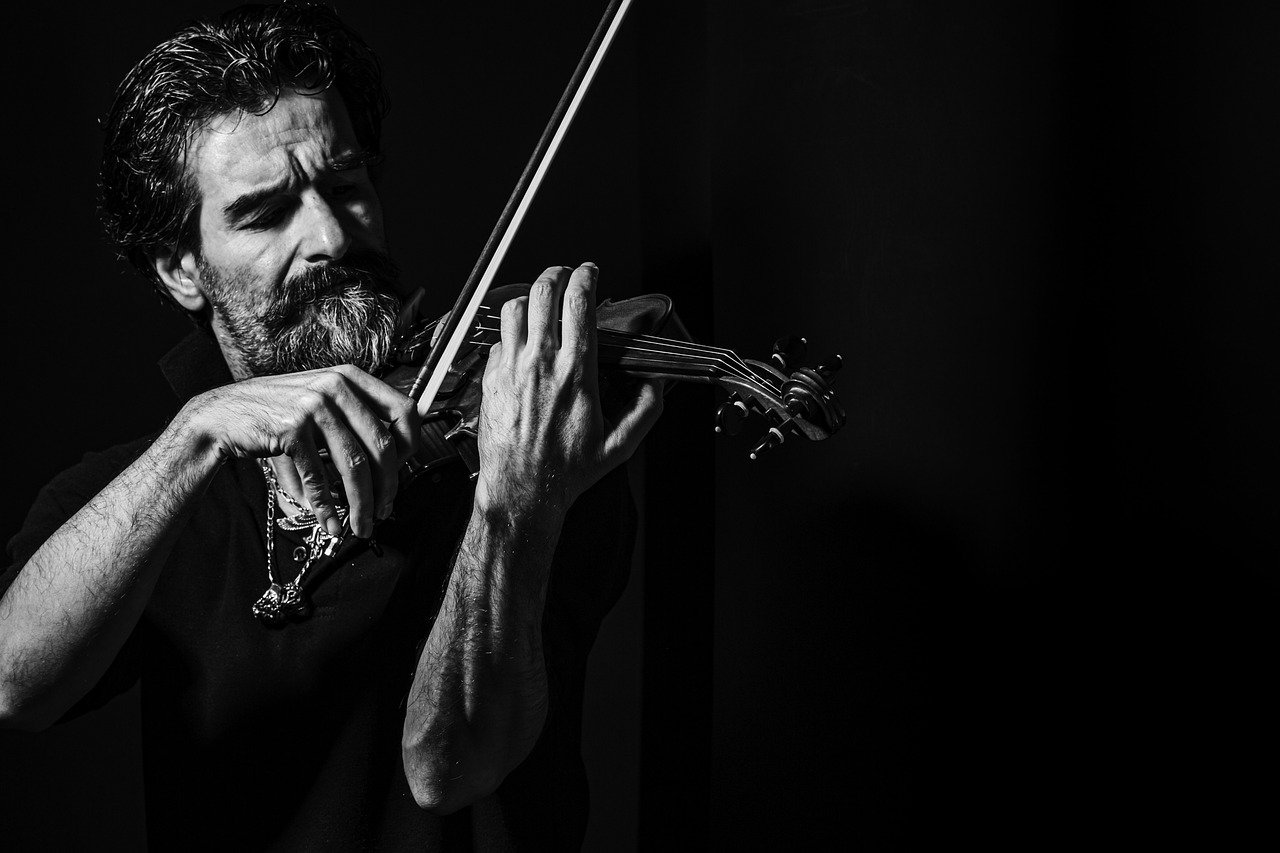
Personalized Listening Experiences
In today's fast-paced digital world, personalization has become a buzzword that resonates with consumers across various industries, and the music sector is no exception. Thanks to advancements in artificial intelligence, music streaming platforms are now able to curate personalized listening experiences that cater to individual preferences like never before. Imagine logging into your favorite music app and being greeted with a playlist that feels as if it was handcrafted just for you. This is not just a dream; it's the reality that AI has made possible.
AI algorithms analyze a multitude of factors to create these tailored experiences. They dive deep into your listening history, taking note of the genres you love, the artists you frequently play, and even the time of day you typically listen. By processing this data, AI can predict what you might enjoy next, making it easier for you to discover new music that aligns with your tastes. For instance, if you often listen to upbeat pop songs during your morning commute, the algorithm will likely suggest similar tracks to keep your energy up.
Moreover, these algorithms are constantly learning. Every time you skip a song or add a track to your favorites, the AI takes note, refining its recommendations to better suit your evolving preferences. It's like having a personal DJ who knows exactly what you want to hear, even before you do! This level of customization not only enhances user engagement but also fosters a deeper emotional connection between listeners and the music they consume.
To give you a clearer picture of how this works, here's a simple breakdown of the process:
| Step | Description |
|---|---|
| Data Collection | AI collects data from your listening habits, including favorite genres, artists, and playlists. |
| Analysis | Algorithms analyze the data to identify patterns and preferences. |
| Recommendation | AI generates a personalized playlist or suggests new tracks based on the analysis. |
| Feedback Loop | As you interact with the recommendations, the AI learns and adapts for future suggestions. |
But it's not just about finding new music; it's also about enhancing the overall experience. Many platforms now offer features that allow users to create collaborative playlists with friends, introducing a social element to music consumption. Imagine being able to share your personalized playlists with friends or discovering what they are listening to in real-time. This fosters a sense of community and connection, making the music experience even richer.
However, while AI has revolutionized how we discover music, there are also concerns regarding the implications of such personalized experiences. Are we becoming too reliant on algorithms? Is there a risk that we might miss out on music outside our typical preferences? These questions are essential as we navigate this new landscape of music consumption.
In conclusion, AI-driven personalized listening experiences have transformed how we engage with music, making it more accessible and enjoyable. By tailoring recommendations to individual tastes, AI not only enhances user satisfaction but also opens up new avenues for discovering artists and genres that might otherwise go unnoticed. As we look to the future, the question remains: how will we balance the convenience of AI with the need for musical diversity and exploration?
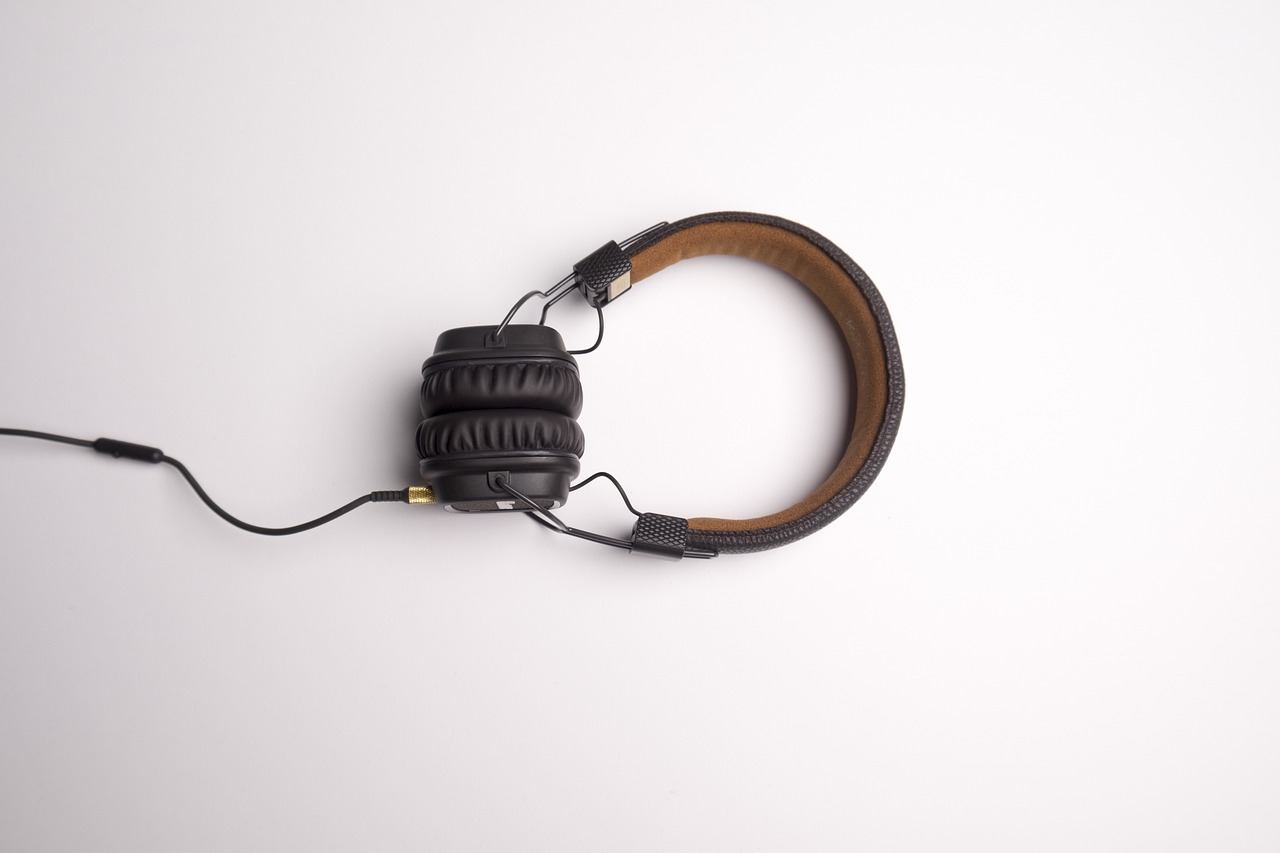
Challenges and Ethical Considerations
As we dive deeper into the realm of AI in the music industry, it’s crucial to pause and reflect on the challenges and ethical considerations that accompany this technological revolution. While AI brings a plethora of benefits, it also raises significant questions about authenticity, ownership, and the potential displacement of human talent. Imagine a world where a machine can compose a symphony that rivals the greats; it sounds incredible, right? But what happens to the human touch that has defined music for centuries?
One of the most pressing issues revolves around copyright. If an AI program generates a piece of music, who owns the rights? Is it the programmer, the user, or the AI itself? This gray area creates a legal quagmire that the industry is grappling with. For instance, consider a scenario where an AI tool produces a song that closely resembles a popular track. Who is responsible if a copyright infringement occurs? The implications are vast, and many artists fear that their creative works could be appropriated without proper credit or compensation.
Furthermore, the question of authenticity looms large. Music has always been a deeply human endeavor, reflecting emotions, experiences, and cultural narratives. When AI takes the reins, can it truly capture the essence of what makes music resonate with listeners? While algorithms can analyze patterns and generate tunes, they lack the lived experiences that fuel genuine creativity. This poses a challenge to traditional notions of artistry and original expression.
Another concern is the potential for job displacement. As AI tools become more sophisticated, there’s a fear that they might replace human musicians, producers, and songwriters. While it’s unlikely that machines will completely take over the industry, the landscape is certainly shifting. Many professionals worry about their roles evolving into more of a supervisory capacity, where they oversee AI-generated content rather than creating it from scratch. This shift could lead to a loss of jobs and a devaluation of human artistry.
Moreover, the reliance on AI for music production and distribution could lead to a homogenization of sound. If everyone uses the same algorithms and tools, will music lose its diversity? The uniqueness that comes from individual creativity could be overshadowed by a wave of similar-sounding tracks, making it harder for new and innovative artists to break through.
As we navigate these challenges, it’s essential for the music industry to establish guidelines and ethical frameworks that address these issues head-on. This includes developing clear copyright laws for AI-generated works, promoting diversity in music production, and ensuring that human creativity remains at the forefront of the artistic process. The future of music should be a collaborative effort between humans and machines, where technology enhances creativity rather than replaces it.
- What are the main ethical concerns regarding AI in music?
The main concerns include copyright issues, authenticity of music, job displacement, and the potential homogenization of sound. - Can AI truly replace human musicians?
While AI can assist in music creation, it lacks the emotional depth and lived experiences that human musicians bring to their art. - How is copyright affected by AI-generated music?
The ownership of AI-generated music is still a legal gray area, raising questions about who holds the rights to the music produced by machines. - What steps can the music industry take to address these challenges?
The industry can establish guidelines for copyright, promote diversity in music, and ensure that human creativity remains central to the artistic process.
Frequently Asked Questions
- What role does AI play in music creation?
AI plays a transformative role in music creation by assisting artists in composing melodies, enhancing arrangements, and even generating complete tracks. Tools powered by AI can analyze existing music and suggest new ideas, making the creative process faster and more innovative.
- Are there specific AI tools that musicians use?
Yes, there are several popular AI-driven tools that musicians use today. Tools like Amper Music, AIVA, and OpenAI's MuseNet allow artists to create music by inputting parameters or styles, enabling them to explore new musical landscapes without needing extensive training in music theory.
- How does AI enhance music production?
AI enhances music production by streamlining processes such as mixing and mastering. It can analyze sound quality, suggest adjustments, and even automate repetitive tasks, allowing producers to focus more on their artistic vision and less on technical details.
- What impact does AI have on music distribution?
AI revolutionizes music distribution by personalizing listener experiences through algorithms that recommend music based on individual preferences. This means users receive tailored playlists and suggestions, making music discovery more engaging and enjoyable.
- Are there ethical concerns associated with AI in music?
Yes, there are several ethical concerns, including issues of copyright and authenticity. As AI-generated music becomes more prevalent, questions arise about who owns the rights to a song created by an AI and how it affects the livelihoods of musicians and producers in the industry.
- Can AI replace human musicians?
While AI can assist in music creation and production, it is unlikely to fully replace human musicians. The emotional depth, creativity, and unique perspectives that human artists bring to their work are irreplaceable, making collaboration between AI and musicians a more likely future scenario.
- How does AI influence songwriting?
AI influences songwriting by providing new tools and perspectives for composers. It can suggest chord progressions, lyrics, and melodies, prompting artists to think outside the box and explore creative avenues they may not have considered otherwise.


